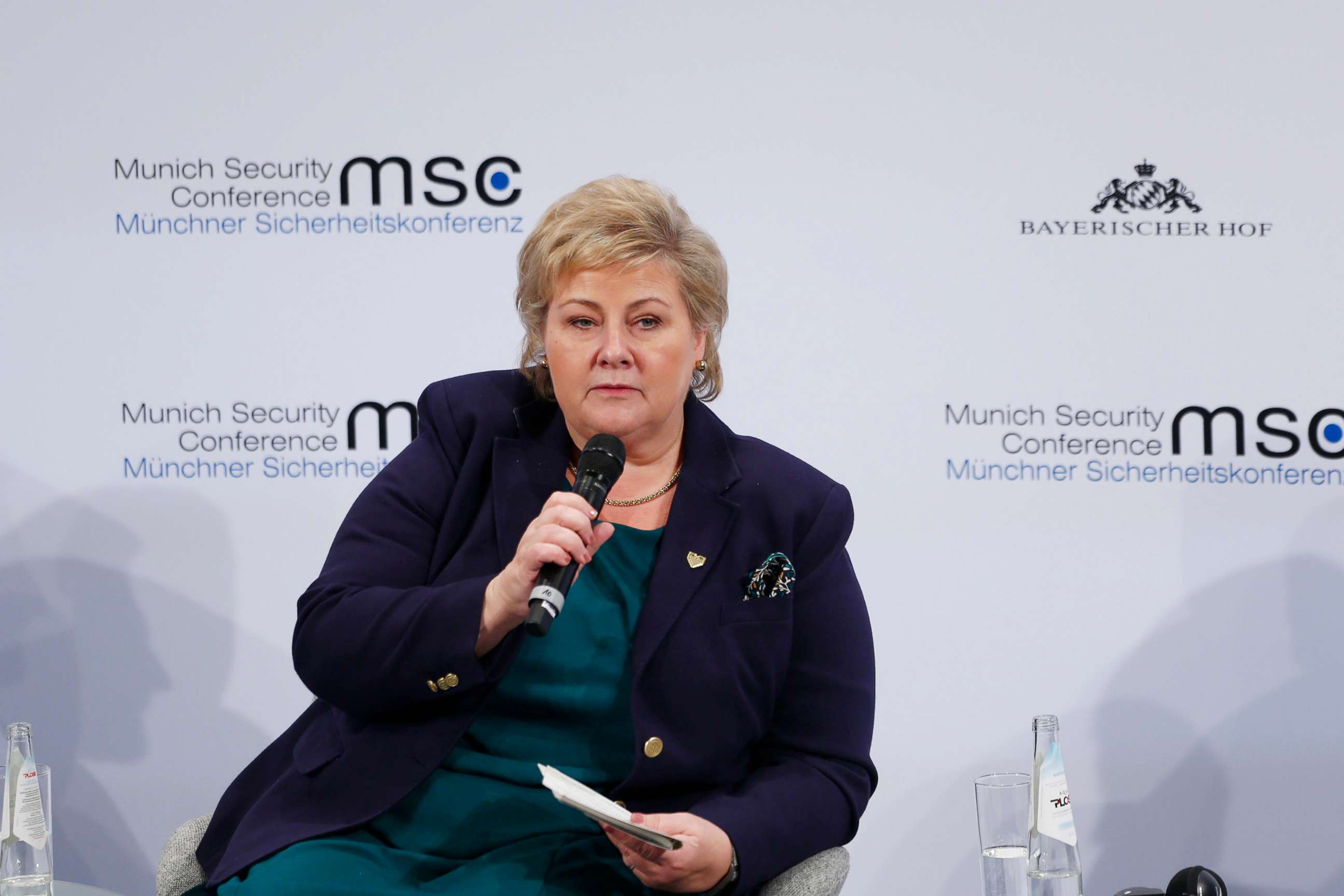Gender equality 'key factor' to pandemic recovery efforts: Norway PM
The COVID-19 pandemic's impact on women is "evident," she said.
The leader of Norway said gender equality is "essential for a sustainable recovery" from the global coronavirus-induced economic crisis, as reports around the world indicate women bear the brunt of unpaid labor amid the pandemic.
The COVID-19 pandemic "has hit women and girls especially hard," Norwegian Prime Minister Erna Solberg said during her keynote speech Tuesday at the "Reykjavik Global Forum — Women Leaders 2020" conference.
Solberg cited an "alarming increase" in women's poverty, rising cases of early and unintended pregnancies, and increases in acts of violence against women and girls around the world.

"The pandemic's impact on women have been evident in our own country as well," Solberg said. "We see that unpaid care work at home isn't evenly distributed between men and women."
"Women spend more time than their partners on household chores and taking care of their children," she added. "No matter how much they work outside the home."
This trend is happening in the United States as well. At least one in four women in the U.S. are considering downshifting their careers or leaving the workforce entirely because of COVID-19, according to a September study from LeanIn.org and consulting firm McKinsey & Company.
The study, involving over 12 million employees from 317 companies, warned that the pandemic could undo years of gains for women in the workplace. It also found that mothers were three times as likely as fathers to be responsible for a majority of the housework and childcare amid the pandemic.
In month of September alone — some six months into the crisis — four times more women than men dropped out of the U.S. labor force, according to the National Women's Law Center, a nonprofit gender equity organization.
Moreover, the unemployment rate for women in the U.S. jumped from 3.4% in February to 6.7% in October, according to data from the Labor Department. Notably, this data does not account for women who left the workplace on their own, because in order to be counted as unemployed, one must be actively seeking work.
"In short, crises tends to reinforce traditional gender roles," Solberg said Tuesday.
The Norwegian leader said the "key factor" of gender equality must be put at the fore of economic recovery measures, imploring governments around the world to ensure that "efforts to rebuild and stimulate the economy are also targeted towards women."
"Our experience is that it pays to invest in women's and girls' education and participation in the workforce," she said. "Women's participation in the labor market contributes more to Norway's prosperity than our petroleum revenue."
Finally, she noted that a lot of global media attention has been focused on the fact that countries with women leaders have tended to fare better during the pandemic than other countries.
"I don't think we should draw and hasty conclusions on the importance of women leaders in this situation," she said. "But I do believe that democratic countries where human rights are respected and where women are able to reach top positions in society are also the countries that are the best-equipped to handled crises by COVID-19."




